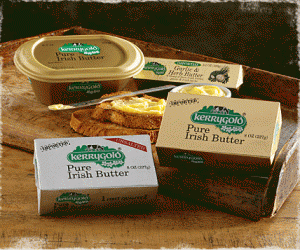
Q: Hi Nora–How much butter is too much butter? We eat mostly Kerrygold or raw butter but my friend was concerned that we were eating way too much. Would love your thoughts. Thanks!
~Susie
A: I was going to answer this with a cutesy remark along the lines of “there can never be too much butter”. I personally have to put dark glasses on before I open my freezer at home because of the blinding glare of all the gold-foil wrappers. (Let’s just say I always make sure I have an ample supply….You never know when there might be a natural disaster!)
That said, I do think it’s important to get your fats from a variety of sources, both saturated and unsaturated. It’s not about the absolute amount of any particular form of natural fat that really matters, but the balance. Saturated fats are pretty neutral in the scheme of things. They neither promote nor suppress inflammatory processes in and of themselves. They are terrific to cook with because they are generally the most stable and resistant to oxidation (rancidity). Saturated fats also serve to protect and transport the delicate polyunsaturated fats in the body. We NEED them. Omega-6’s are essential and important for some things but in excess tend to promote inflammation, as a (very) general rule. –Horrible to cook with (safflower oil, sunflower oil, most other seed oils except sesame oil, which has the heat-protective antioxidant sesamin). Omega-3’s are critical for anti-inflammatory processes, cognitive functioning, mood and a lot of other things but in excess (as well as omega-6’s) can promote free radical activity and excess cellular membrane fluidity (also never cook with it). –This includes things like walnut and flax oil (also fish oil, but thankfully no one thinks to cook with that) –One always needs some saturated fat along with omega-3’s or 6’s in the daily diet. Omega-9’s (olive oil) are essentially neutral and non-essential, though not great to cook with, either just because of the relatively low smoking (rancidity) point. Being a pretty long-chain fat it’s also more likely to be stored in the body than shorter or medium-chain fats found in things like butter and coconut oil which are more immediately energizing.
The short chain fats in butter (though there are other, longer chain fatty acids in it) are really preferentially burned for energy rather than stored as body fat. Butyric acid (for which butter is named) is, in fact, THE preferred food for the cells of the colon and has important roles to play in immunity. Butter (especially grass fed butter) is also one of the richest natural sources of selenium and is a rich source of real, preformed vitamin A (which many people’s diets are lacking). Raw grass fed butter also has unadulterated X-factor, something called Wulzen (or “anti-stiffness”) factor and CLA, a fatty acid that can have beneficial effects on health and body composition. In short, butter is great stuff—though there has been a long-term medical mythology surrounding it as somehow the root of all dietary evil. This is not remotely substantiated in the literature — it was promoted by the vegetable oil industry as a means of discouraging the competition. The public has paid a dear price for that unjust slander. These old myths die hard and some people have a hard time getting over it psychologically (no problem—more butter for me!). One thing to consider, however, is the possibility of casein sensitivity. Those with casein sensitivity may not tolerate butter well due to the presence of milk solids in it. I have casein sensitivity but can tolerate butter in small doses. Others may not be able to, however and may do better with something like butter oil or ghee. The thing about any fat we consume is that its consumption is self-limiting. Fat is rich and filling. Fat directly activates leptin to control the appetite, so you really don’t have to worry about going too overboard. Most people don’t binge on butter (however tempting).
In the end, just make sure you eat a variety of natural fats from natural sources, being careful to eat adequate essential fatty acids along the way (EPA, DHA and GLA) and let your body sort out the details. Our bodies have been doing that just fine for a couple of million years or more.
~Nora
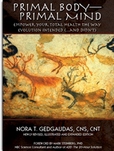
Primal Body Primal Mind
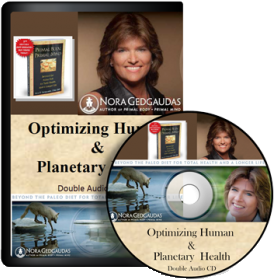
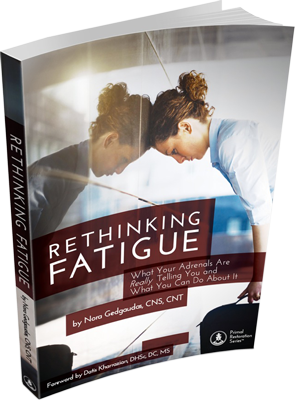
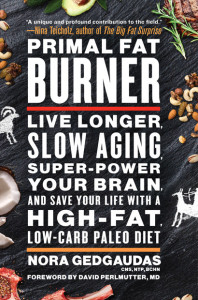
Hey Nora,
First time reader, fellow Winnipegger who also moved west (Victoria, BC in my case) here.
Thanks for the post on butter. It was surprisingly relevant to me after reading Kurt Harris’s thoughts on the subject.
Can I ask you a favour?
Free consulting combined with a personal loan and a copy of your book.
Just kidding. Can you give us a tutorial on how to pronounce your last name?
Warm regards,
Christoph
Hello fellow Winnipegian!! Thanks for your remarks, eh?
The pronunciation of my name goes like this:
GED-GAU-DUHS.
“Eh?”
Don’t try too hard, turncoat yank! You’re cool. I like you already.
Thank you Nora for your contributions to the nutrition world. Hoping to meet you at the ancestral symposium in August!
Dear Nora,
I am loving your book “Primal Body, Primal Mind”!! I’m still reading, but already applying ALL that I am reading. I got concerned that I may be consuming too much organic raw pastured heavy cream, mostly in the form of home-fermented creme fraiche (French style sour cream), so I did an internet search and this page came up with YOU answering my question. How nice! So, the truth is, I have been consuming about 16-20 ounces per day of heavy cream, which I get directly from the woman who has 4 organically grass-fed, jersey cows. So I am having as much as 2,000 calories a day just of cream! Sometimes I drain the home made creme fraiche through cheese cloth so the whey drains away and it is extra thick, almost like butter but without churning it. My body REALLY seems to want this. I am eating 3,300-5,000 calories per day, not gaining any weight, and never feeling particularly full. My tummy always feels flatter and thinner than it ever was when I ate carbs. I am staying under 40 grams of total (fiber included) carbs per day, and trying to limit my protein, but I’m afraid it is often up to 100 grams per day, and all the rest of my diet is animal fats. I feel good, but it is just astonishing to me that I feel a need for so many calories! Is this okay? Is this unusual?
BTW, before I changed my name to Kundalini, it used to be Nora.